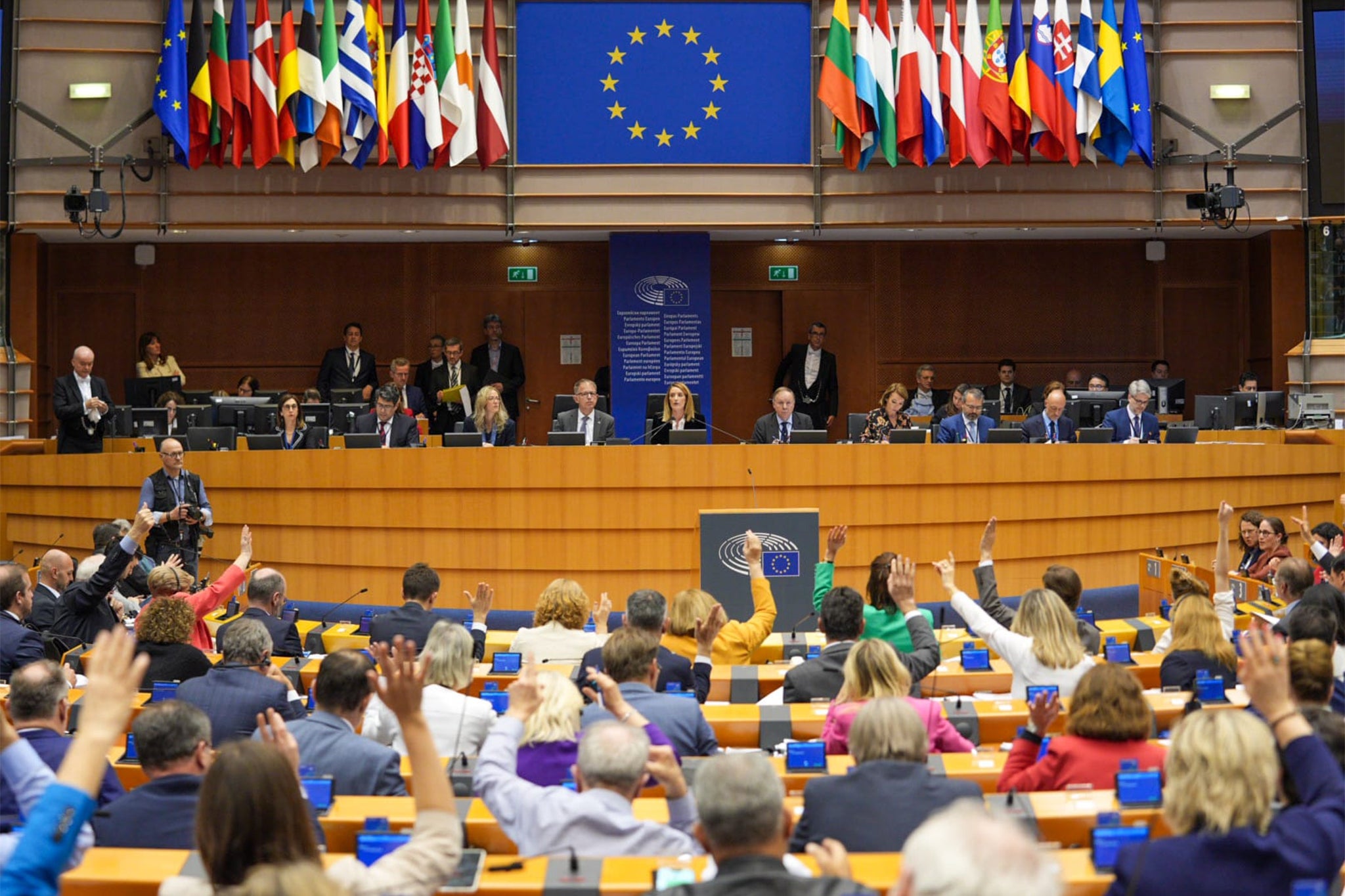European politicians back ‘historic’ shake-up of migration and asylum laws
Pact involves cutting security waiting times but also increasing numbers sent back

Your support helps us to tell the story
This election is still a dead heat, according to most polls. In a fight with such wafer-thin margins, we need reporters on the ground talking to the people Trump and Harris are courting. Your support allows us to keep sending journalists to the story.
The Independent is trusted by 27 million Americans from across the entire political spectrum every month. Unlike many other quality news outlets, we choose not to lock you out of our reporting and analysis with paywalls. But quality journalism must still be paid for.
Help us keep bring these critical stories to light. Your support makes all the difference.
European politicians have voted to revamp the bloc’s migration and asylum laws in what was hailed as a “historic” pact.
The package of bills agreed promises to cut times for security and asylum procedures and increase returns to reduce unwanted immigration from the Middle East and Africa, a high priority on the EU’s agenda.
It includes developing the European criminal records information system for “third country” nationals at the EU’s external borders.

After nearly a decade of feuds between the 27 member states, the compromise proposals balance the obligations of arrival countries such as Italy with help from better-off ones such as Germany.
The German chancellor, Olaf Scholz, called the pact a historic step that represented solidarity among European states.
“It limits irregular migration and finally relieves the burden on the countries that are particularly badly affected. A historic, indispensable step,” he wrote on social media.
The measures had been attacked by anti-immigration, eurosceptic and far-right parties for not going far enough to stop migration, while leftists and human-rights activists had lambasted it as a blow.
Roberta Metsola, the European Parliament president, wrote: “History made. We have delivered a robust legislative framework on how to deal with migration and asylum in the EU.
“It has been more than 10 years in the making. But we kept our word. A balance between solidarity and responsibility. This is the European way.”
Tomas Tobé, a Swedish centre-right European People’s Party MEP, said: “Now the EU can regain control of our external borders, reduce economic migration and put in place a common migration policy that is well functioning and fit for the long-term.”
But the Greens in the European Parliament, who opposed the package, said that “the lack of solidarity towards asylum-seekers and between member states” would only worsen.
Filippo Grandi, the UN high commissioner for refugees, welcomed the pact as a “step forward towards a more effective, shared asylum system”.
Migration has been a hot issue in the EU since more than a million people – mostly Syrian refugees – arrived across the Mediterranean in 2015, catching the bloc unprepared amid scenes of chaos and suffering.
More than 46,000 people have entered the EU so far this year unofficially, according to UN data, which also suggests 400 people died trying to get in.
The revamp still needs to be approved this month by member states. They would then have two years to implement it, though analysts warn not to expect major changes on the ground overnight.
Subscribe to Independent Premium to bookmark this article
Want to bookmark your favourite articles and stories to read or reference later? Start your Independent Premium subscription today.
Join our commenting forum
Join thought-provoking conversations, follow other Independent readers and see their replies
Comments